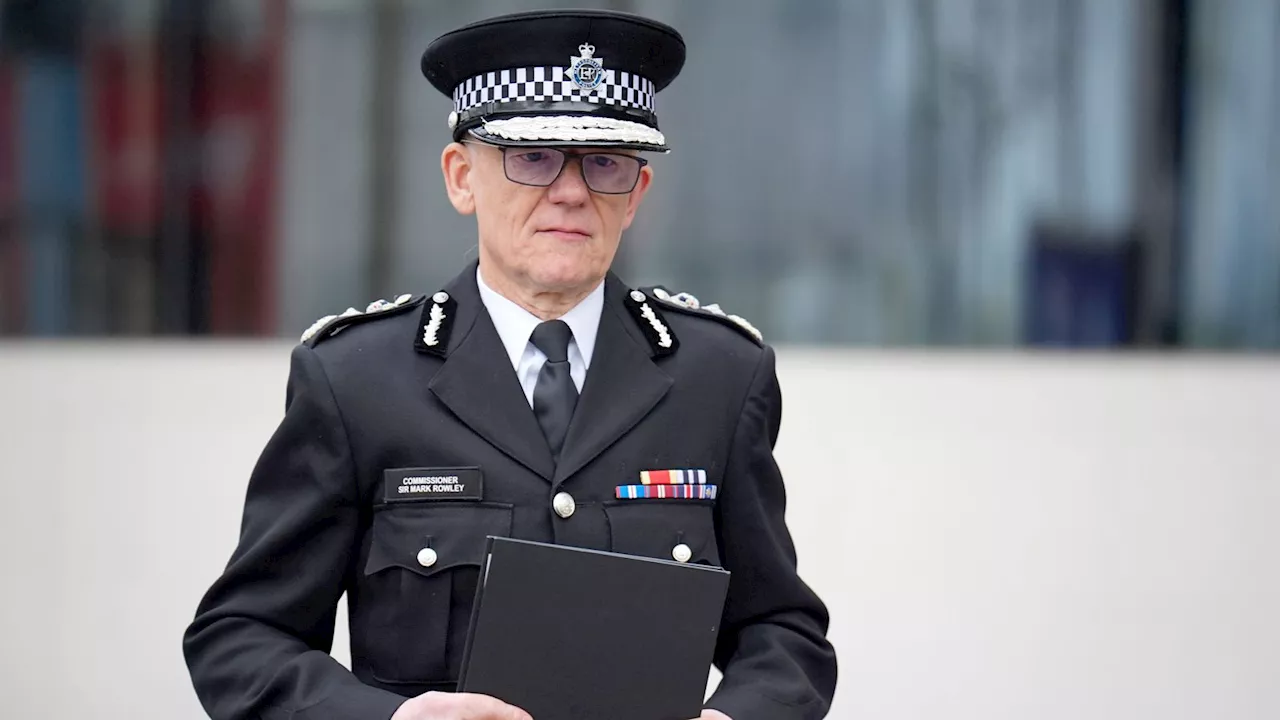The UK's largest police force is facing backlash after a High Court ruling prevents it from dismissing officers by removing their vetting clearance. This decision, deemed a 'test case', will have profound implications for how police forces handle misconduct allegations. Met Police Commissioner Sir Mark Rowley expressed his deep concern, stating that the ruling leaves policing in a 'hopeless position' as the force lacks the power to remove unfit officers. The court ruled in favor of Sergeant Lino Di Maria, who faced rape allegations but was not found to have a case to answer. He challenged the process of removing his vetting clearance, arguing it was unlawful. The ruling now prevents all UK police forces from dismissing officers solely by withdrawing their vetting clearance.
Policing has been left in a 'hopeless position' following a High Court ruling that forces cannot dismiss officers by removing their vetting clearance, Met Police Commissioner Sir Mark Rowley has said. It comes after the court ruled against the UK's largest police force in what has been described as a 'test case' that officials say will have major implications for the sacking of police officers accused of misconduct.
It was decided the force was wrong to remove the vetting of Sergeant Lino Di Maria, who had faced rape allegations - which he denied. Supported by the Metropolitan Police Federation - a union for rank-and-file officers - he brought a legal challenge claiming the process was unlawful. On Tuesday, the High Court ruled the vetting clearance decision regarding Mr Di Maria be 'quashed and reconsidered'. This means the UK's police forces cannot dismiss officers by removing their vetting after the High Court ruling. This had been a key part of Scotland Yard's efforts to clean up the force after scandals like the murder of Sarah Everard - who was killed by a serving Met officer in 2021. Concerns have been raised that the ruling 'opens the gates' to those 'accused of horrific crimes', like rape and violence against women, remaining as officers. 'Hopeless position' Sir Mark warned the ruling left policing in a 'hopeless position' and said he would seek leave to appeal it. He added: 'We have no mechanism to rid the Met of officers who are not fit to hold vetting. It is absolutely absurd we cannot sack them.' In the ruling, Mrs Justice Lang explained the decision, saying she did not believe the Met Police's powers extended to dismissing officers 'by reason of withdrawal of vetting clearance'. She said an 'anomaly' existed in the system that should be resolved by new government regulations. Existing procedures, she added, were not 'fit for purpose'. In his statement, Sir Mark repeated his calls for the government to introduce the new regulations with 'extreme urgency', saying the judge had 'identified a clear gap in the law'. A spokesperson for the Home Office said the government was working 'rapidly' to introduce 'new, strengthened rules that will help forces dismiss officers who cannot maintain vetting clearance.' London Mayor Sir Sadiq Khan said he was 'really disappointed' by the ruling. Operation Assure The Met Police began reviewing the status of officers who were alleged to have committed sexually violent crimes under a system it called Operation Assure. Assure was put in place to try and clean up the police after the Met suffered a series of scandals. Read more from Sky News:Grenfell Tower - what happens now?Feral pigs on the loose in ScotlandWarning as snow hits parts of UK Some were removed after the emergence of serious accusations, including one officer who is alleged to have tried to form a relationship with a 13-year-old girl in the US, though authorities were unable to prove this. In some cases, officers had their vetting clearance removed and were dismissed from the force, without proving whether the allegations against them were true. But the latest court ruling is a blow to the force's clean-up efforts. Sir Mark said there were currently 29 officers who have had their vetting removed who remain on paid leave, and 96 who have been sacked or resigned under the clean-up efforts. Around 100 were in the early stages of vetting reviews, he added. Allegations against Mr Di Maria Mr Di Maria will remain on vetting special leave, Sir Mark said, describing it as a 'ridiculous waste of money' but the 'least bad option'. He joined the force in 2004, Mrs Justice Lang said, and was accused of rape in 2019, with a second allegation made in 2021. In the same year, it was alleged he had also been inappropriate towards female colleagues. Mr Di Maria had denied the allegations against him. Due to insufficient evidence, he was found to have no case to answer regarding the rape allegations. In a meeting in 2022, no action was taken against him, but some matters were recorded as 'adverse information' the judge said. His vetting was removed in September 2023 and his initial appeal against this was refused last year
POLICING UK HIGH COURT MET POLICE VETTING CLEARANCE MISCONDUCT OFFICERS SACKING SERGEANT LINO DI MARIA OPERATION ASSURE
United Kingdom Latest News, United Kingdom Headlines
Similar News:You can also read news stories similar to this one that we have collected from other news sources.
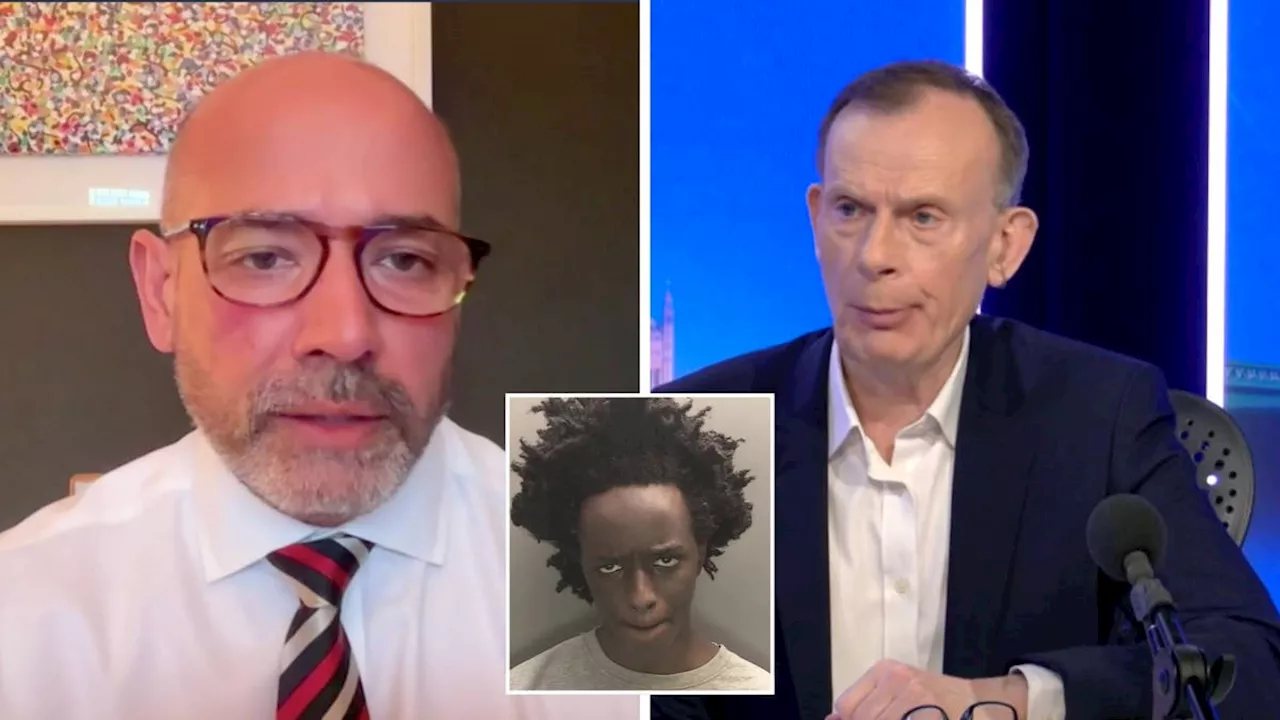 Former Met Police Chief: Southport Killer 'Not a Terrorist'Neil Basu, ex-Counter Terrorism Police Chief of the Metropolitan Police, has stated that the Southport killer, Axel Rudakabana, is not a 'terrorist' despite his guilty plea to three counts of murder, 10 of attempted murder, and two terror-related charges. Basu believes labeling individuals like Rudakabana as terrorists could give them the notoriety they seek and inspire further violence. His comments follow Prime Minister Rishi Sunak's warning about a new breed of terrorist emerging in the UK. Basu argues that while Rudakabana's actions are horrific, they do not constitute terrorism, which he defines as a political crime. He highlights the difficulty of preventing attacks originating from internet radicalization and emphasizes the need for caution in labeling individuals as terrorists.
Former Met Police Chief: Southport Killer 'Not a Terrorist'Neil Basu, ex-Counter Terrorism Police Chief of the Metropolitan Police, has stated that the Southport killer, Axel Rudakabana, is not a 'terrorist' despite his guilty plea to three counts of murder, 10 of attempted murder, and two terror-related charges. Basu believes labeling individuals like Rudakabana as terrorists could give them the notoriety they seek and inspire further violence. His comments follow Prime Minister Rishi Sunak's warning about a new breed of terrorist emerging in the UK. Basu argues that while Rudakabana's actions are horrific, they do not constitute terrorism, which he defines as a political crime. He highlights the difficulty of preventing attacks originating from internet radicalization and emphasizes the need for caution in labeling individuals as terrorists.
Read more »
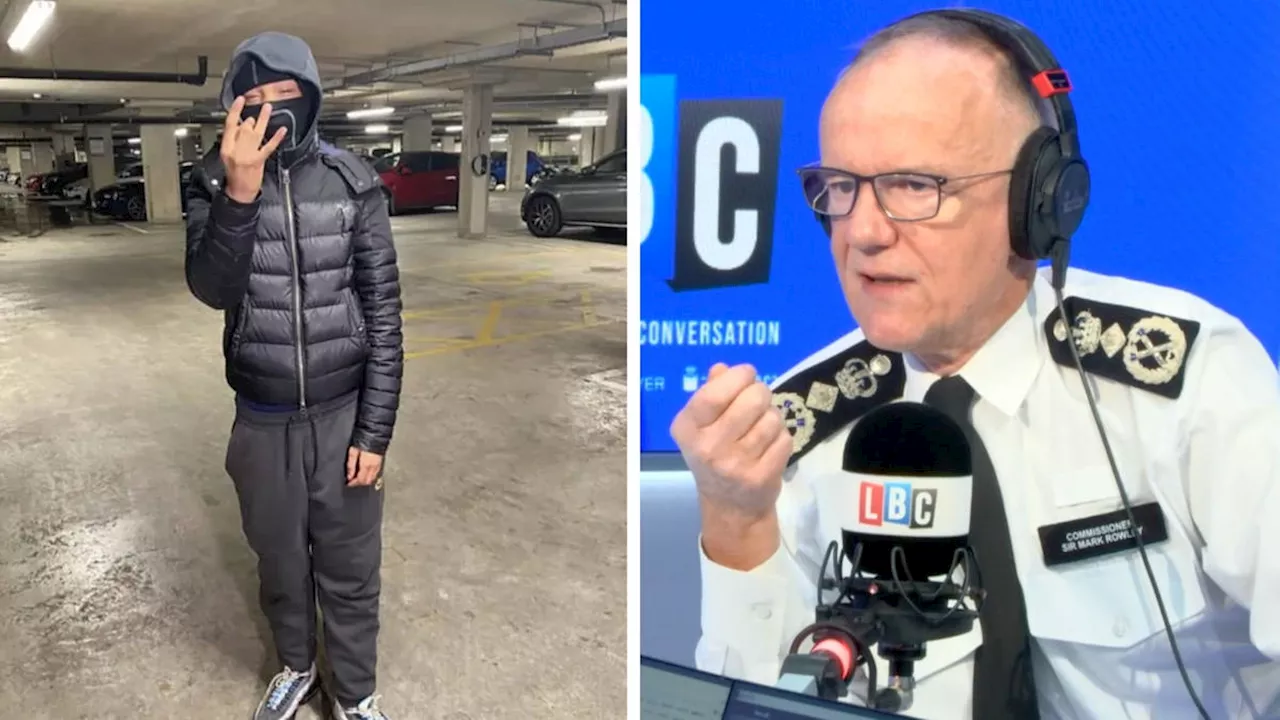 Met Police Chief Backs Controls on Drill Music and Online ViolenceSir Mark Rowley, the head of the Metropolitan Police, has voiced his support for regulating drill music and online content that may incite violence. He expressed concerns about the genre's connection to gang crime and its potential to normalize violence among young people.
Met Police Chief Backs Controls on Drill Music and Online ViolenceSir Mark Rowley, the head of the Metropolitan Police, has voiced his support for regulating drill music and online content that may incite violence. He expressed concerns about the genre's connection to gang crime and its potential to normalize violence among young people.
Read more »
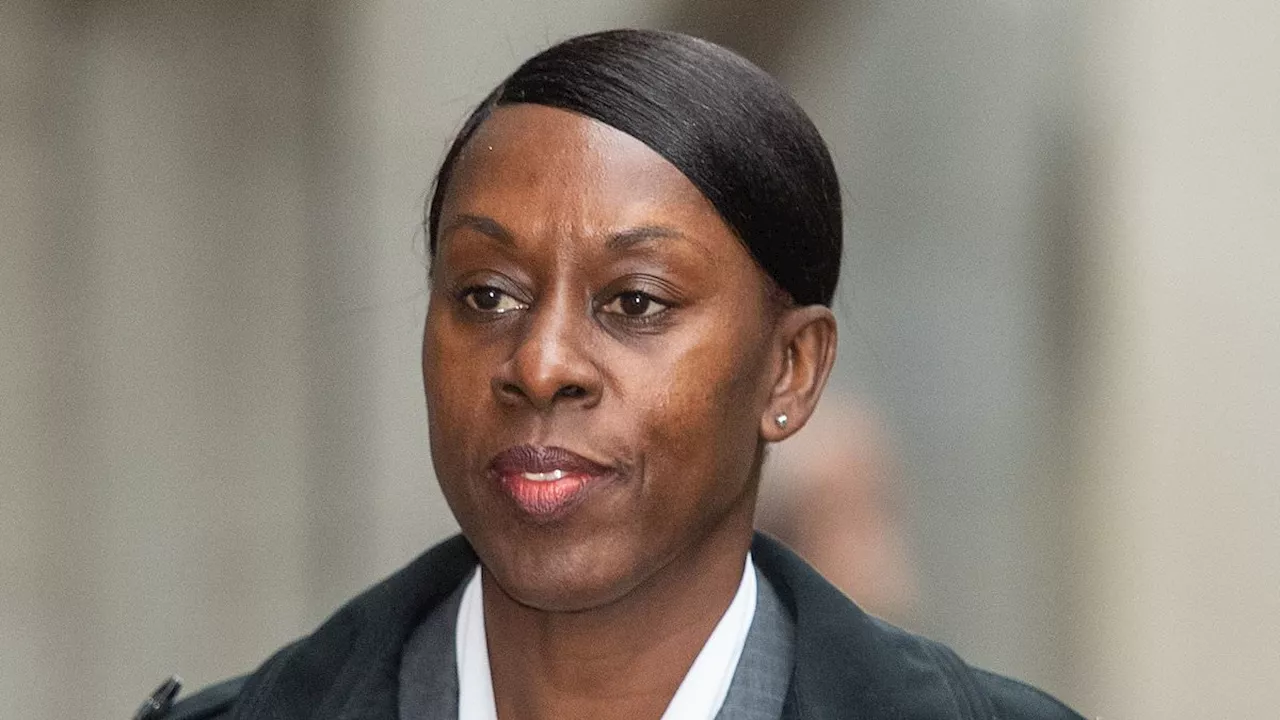 Ex-Police Officer Sues Met Police for DiscriminationFormer Superintendent Novlett Williams alleges the Met Police treated her disproportionately after her conviction for possession of a child abuse video, claiming they engaged in a campaign to end her employment. She accuses the force of applying pressure to the Crown Prosecution Service to bring further charges and of imposing unfair notification requirements. Williams, who received a lenient sentence for the offense and was later reinstated, is now seeking compensation for race and sex discrimination.
Ex-Police Officer Sues Met Police for DiscriminationFormer Superintendent Novlett Williams alleges the Met Police treated her disproportionately after her conviction for possession of a child abuse video, claiming they engaged in a campaign to end her employment. She accuses the force of applying pressure to the Crown Prosecution Service to bring further charges and of imposing unfair notification requirements. Williams, who received a lenient sentence for the offense and was later reinstated, is now seeking compensation for race and sex discrimination.
Read more »
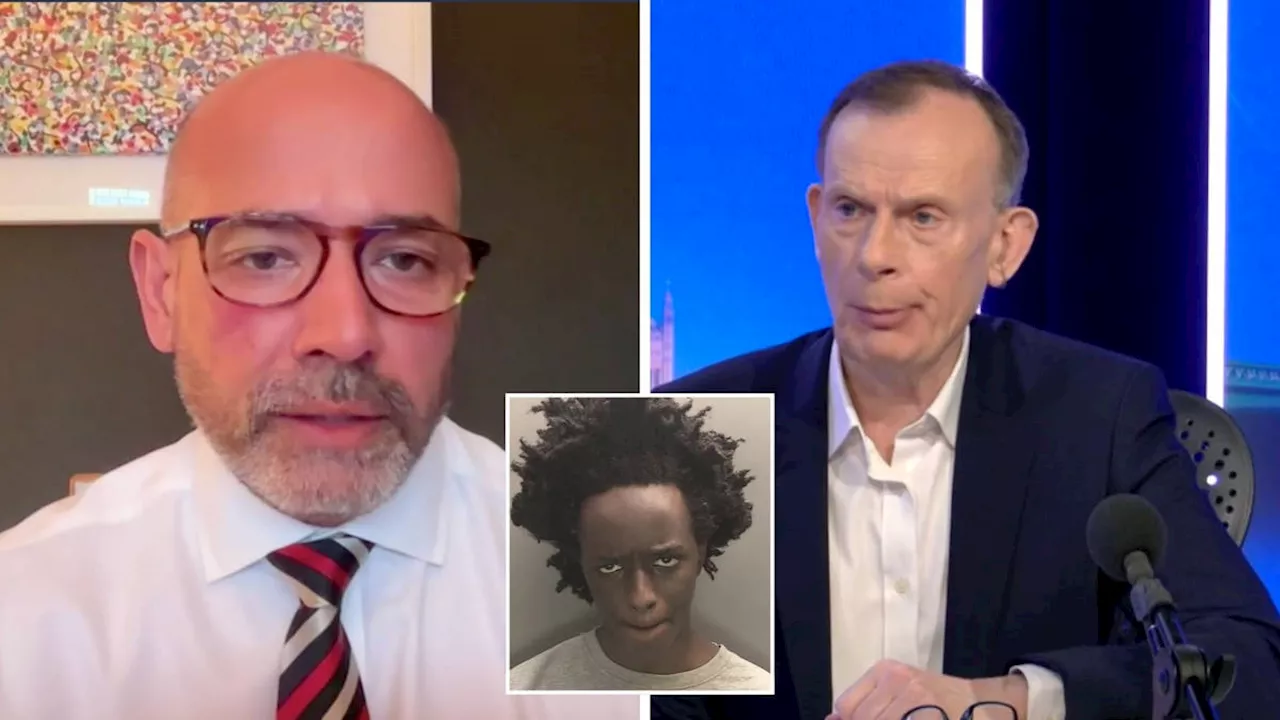 Southport Killer Not a Terrorist, Says Former Met Counter Terrorism ChiefNeil Basu argues that individuals like Axel Rudakabana, convicted of murder and terror-related charges, are not terrorists and that labelling them as such could be counterproductive. He emphasizes the complexities of online radicalisation and the need for a nuanced approach to counter-terrorism.
Southport Killer Not a Terrorist, Says Former Met Counter Terrorism ChiefNeil Basu argues that individuals like Axel Rudakabana, convicted of murder and terror-related charges, are not terrorists and that labelling them as such could be counterproductive. He emphasizes the complexities of online radicalisation and the need for a nuanced approach to counter-terrorism.
Read more »
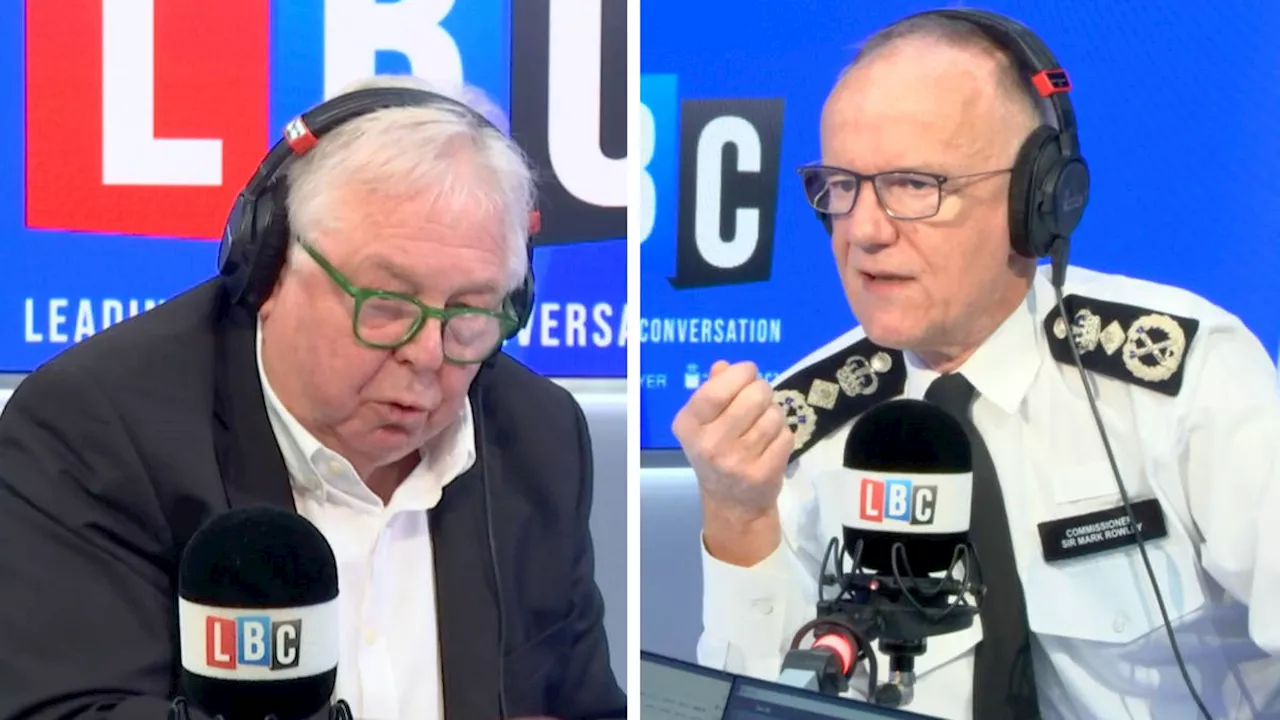 Southport attack was ‘not an act of terrorism,’ Met chief Sir Mark Rowley tells LBCMetropolitan Police chief Sir Mark Rowley has told LBC that the Southport attack that claimed the lives of three young girls was ‘not an act of terrorism’.
Southport attack was ‘not an act of terrorism,’ Met chief Sir Mark Rowley tells LBCMetropolitan Police chief Sir Mark Rowley has told LBC that the Southport attack that claimed the lives of three young girls was ‘not an act of terrorism’.
Read more »
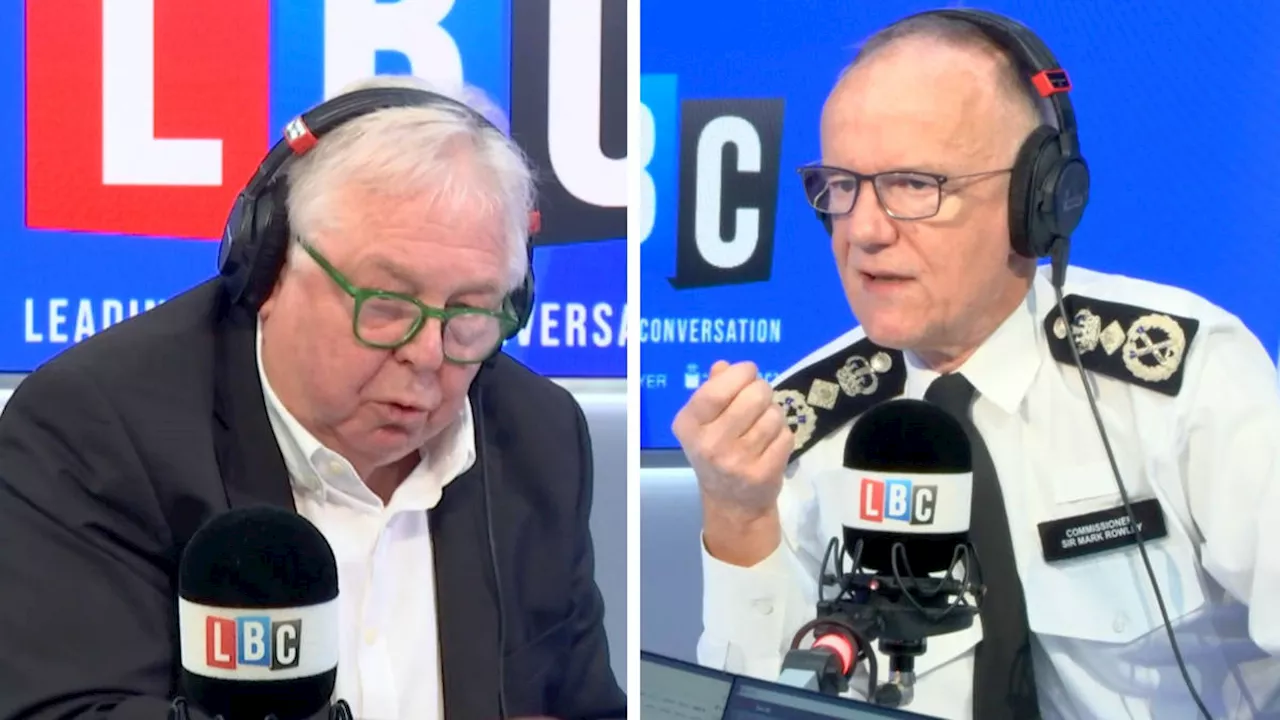 Southport Attack Not Terrorism, Admits Met Chief, But Calls For Legal ChangesMetropolitan Police chief Sir Mark Rowley stated that the Southport attack, which resulted in the deaths of three young girls, was not classified as terrorism. While acknowledging the need for legal evolution to address modern crime, Rowley highlighted the limitations imposed by contempt of court laws that prevented police from sharing more information during the investigation. He admitted that the system 'failed' in this case, despite the Prevent program's efforts. Rowley emphasized the need for changes to allow for earlier information sharing in similar situations.
Southport Attack Not Terrorism, Admits Met Chief, But Calls For Legal ChangesMetropolitan Police chief Sir Mark Rowley stated that the Southport attack, which resulted in the deaths of three young girls, was not classified as terrorism. While acknowledging the need for legal evolution to address modern crime, Rowley highlighted the limitations imposed by contempt of court laws that prevented police from sharing more information during the investigation. He admitted that the system 'failed' in this case, despite the Prevent program's efforts. Rowley emphasized the need for changes to allow for earlier information sharing in similar situations.
Read more »
